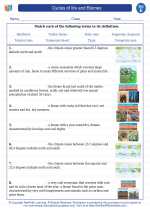Lakes
A lake is a large body of water that is surrounded by land. It is usually still or slow-moving and can be freshwater or saltwater. Lakes are formed in various ways, including through the melting of glaciers, volcanic activity, and the damming of rivers by natural or man-made barriers.
Formation of Lakes
Lakes can be formed by different geological processes:
- Glacial Lakes: When glaciers melt, they can leave depressions in the land that fill with water, forming glacial lakes.
- Volcanic Lakes: Craters or calderas left by volcanic eruptions can fill with water, creating volcanic lakes.
- Oxbow Lakes: These form when a meandering river changes course, leaving behind a curved lake known as an oxbow lake.
- Tectonic Lakes: Rift valleys and depressions caused by tectonic movements can fill with water, forming tectonic lakes.
Ecological Importance
Lakes are important ecosystems that support a wide variety of plant and animal life. They provide habitats for fish, birds, amphibians, and aquatic plants. Additionally, lakes play a crucial role in the water cycle, helping to regulate the flow of rivers and streams and providing water for human consumption and agriculture.
Human Uses
Humans use lakes for various purposes, including fishing, recreational activities such as boating and swimming, and as a source of drinking water and irrigation for agriculture.
Study Guide
To study lakes, it's important to understand their formation, ecological significance, and human uses. Here are some key points to focus on:
- Describe the different ways in which lakes can be formed, including glacial, volcanic, oxbow, and tectonic processes.
- Explain the ecological importance of lakes and the diverse life forms they support.
- Discuss the ways in which humans interact with and use lakes for various activities and resources.
- Research specific examples of famous or significant lakes around the world and their unique characteristics.
- Consider the environmental challenges facing lakes, such as pollution, invasive species, and habitat destruction, and explore potential solutions to these issues.
By understanding the formation, ecological significance, and human uses of lakes, you can gain a comprehensive understanding of these vital freshwater ecosystems.
[Lakes] Related Worksheets and Study Guides:
.◂Science Worksheets and Study Guides Fifth Grade. Cycles of life and Biomes
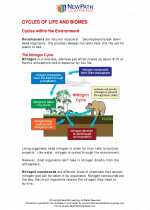
 Worksheet/Answer key
Worksheet/Answer key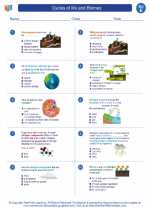
 Worksheet/Answer key
Worksheet/Answer key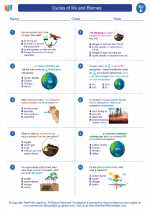
 Worksheet/Answer key
Worksheet/Answer key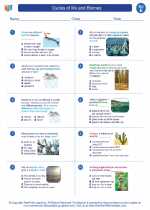
 Worksheet/Answer key
Worksheet/Answer key
 Vocabulary/Answer key
Vocabulary/Answer key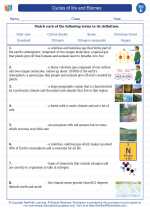
 Vocabulary/Answer key
Vocabulary/Answer key